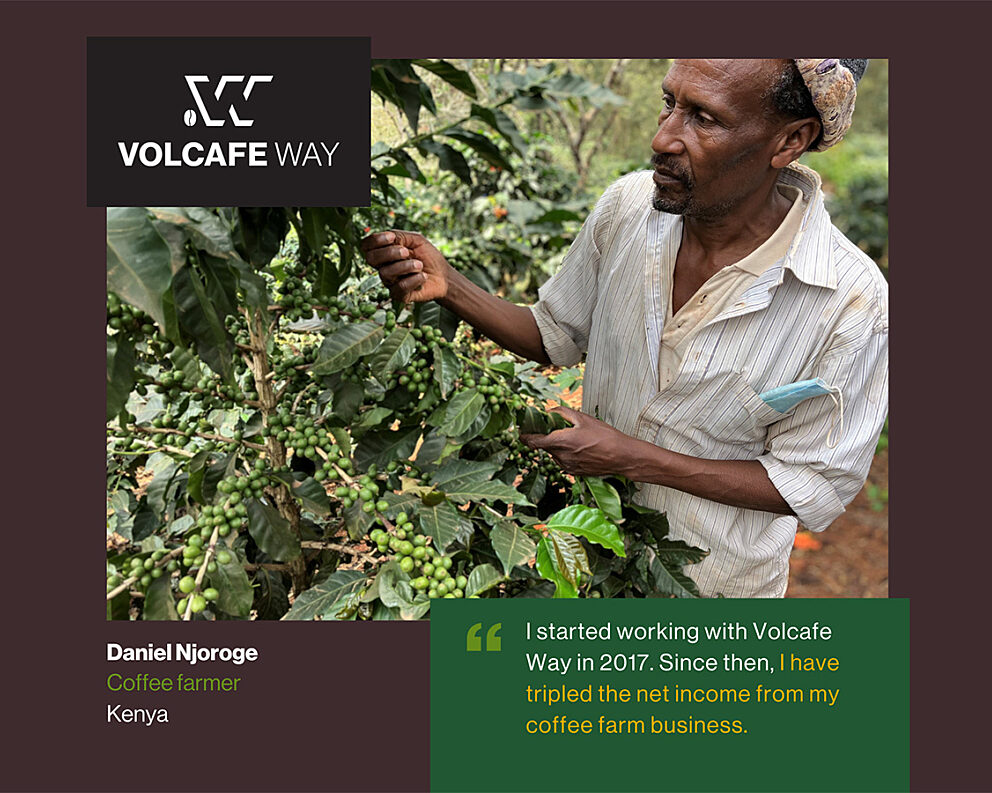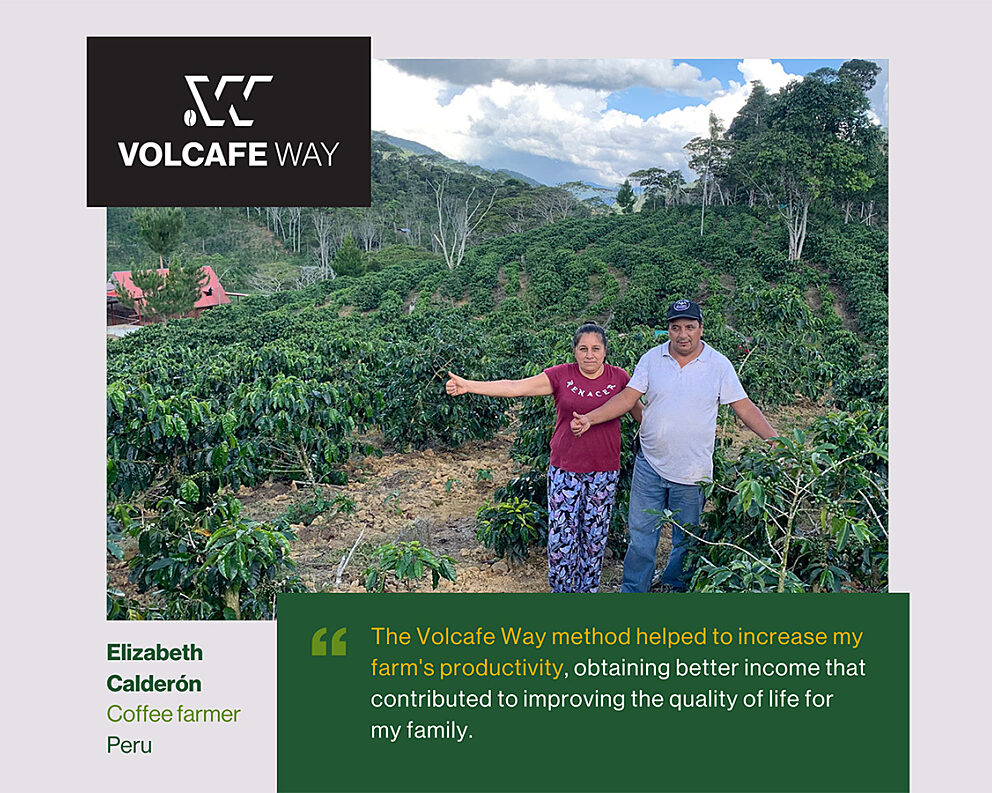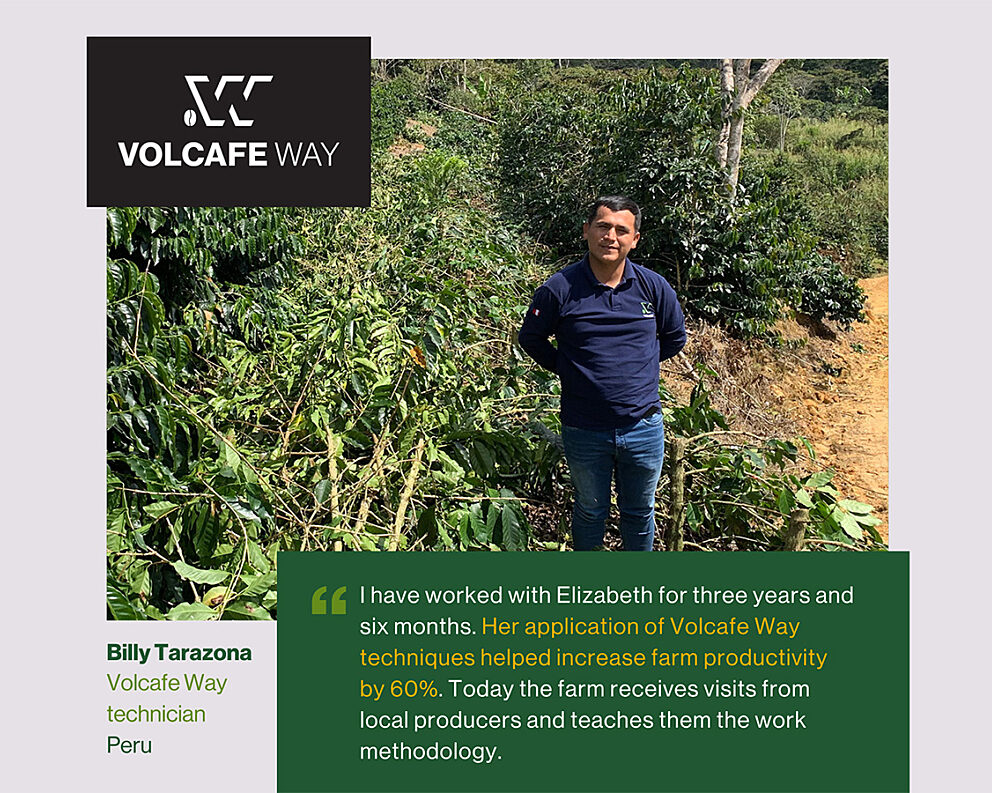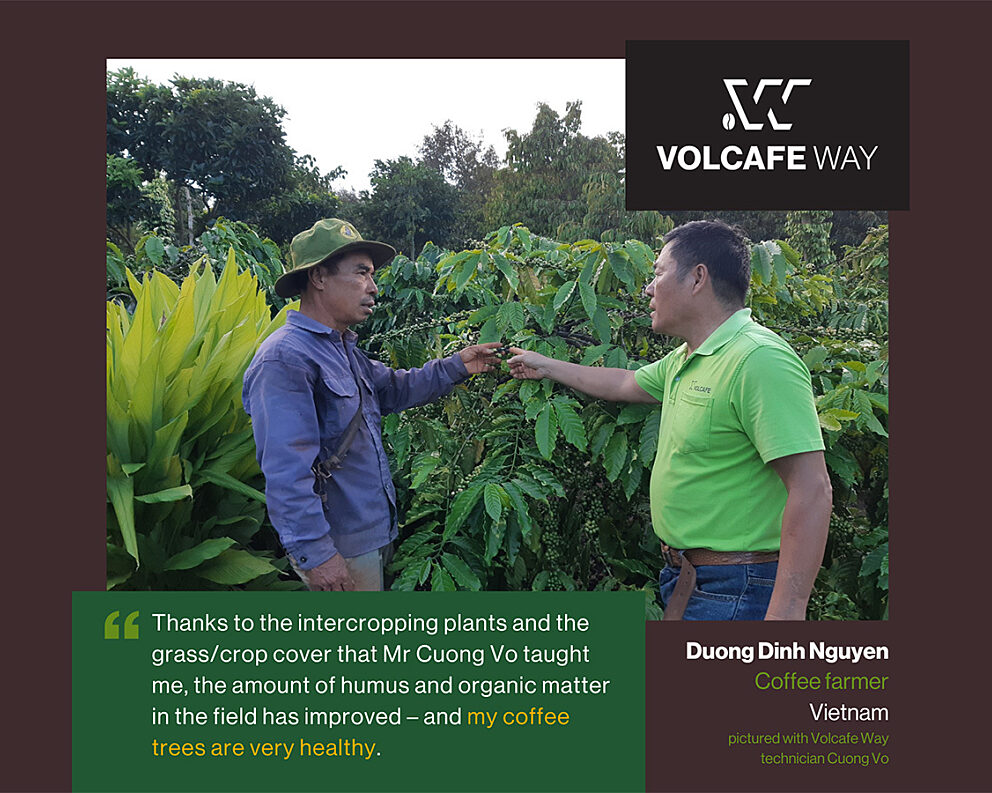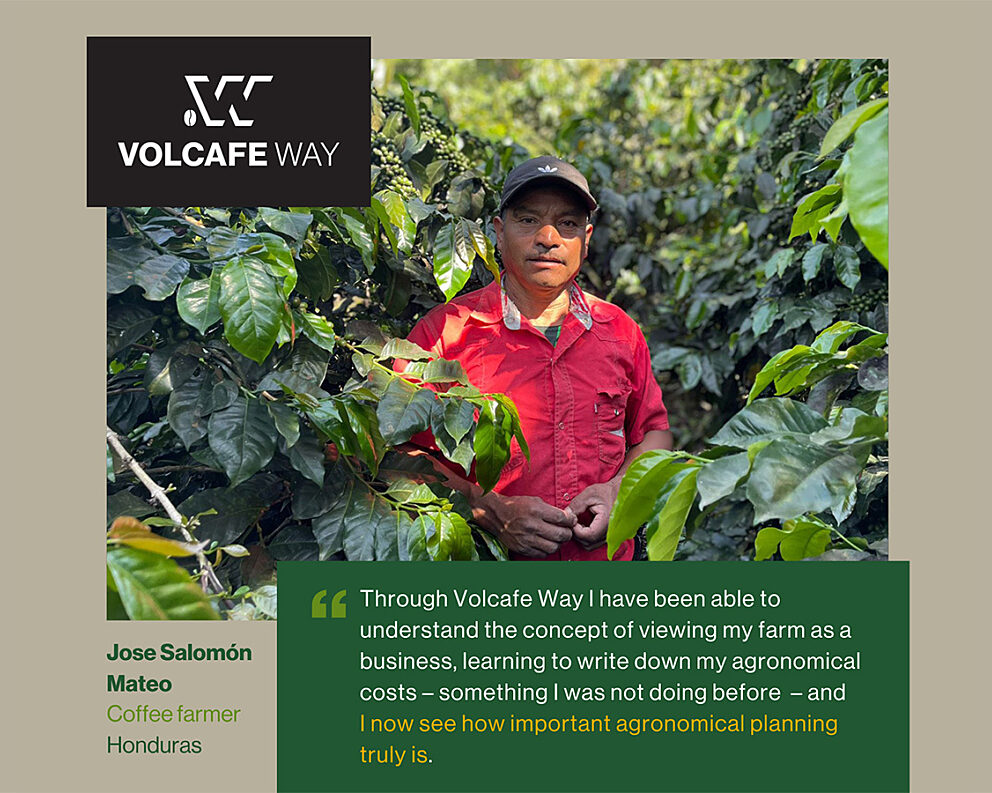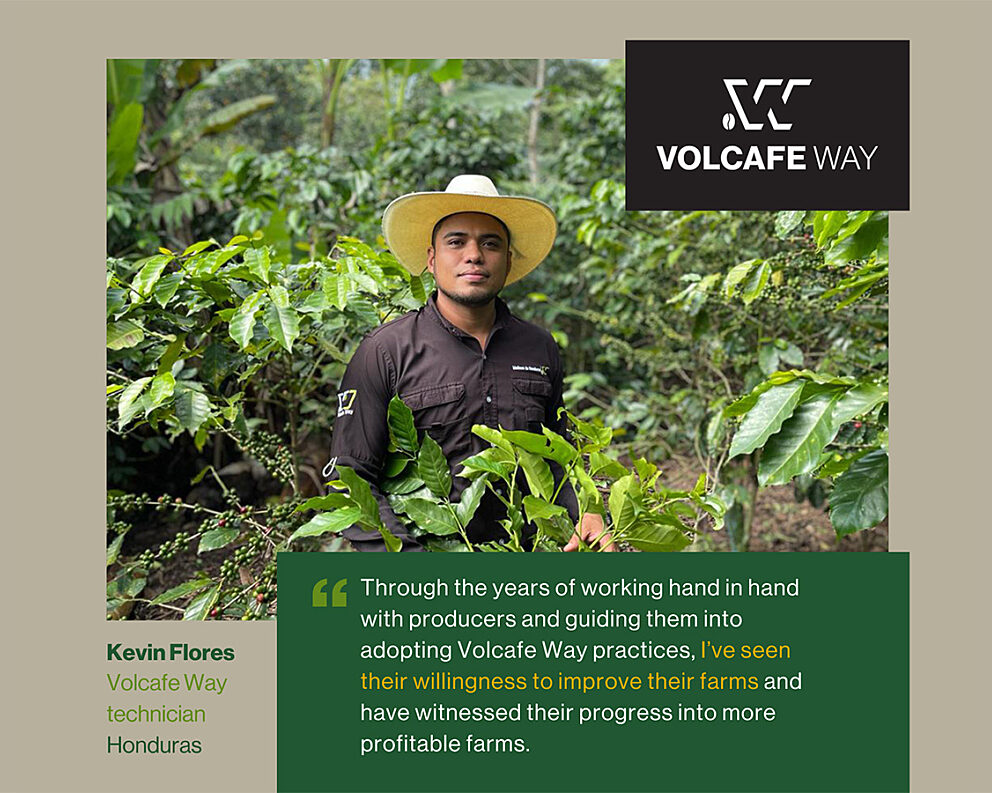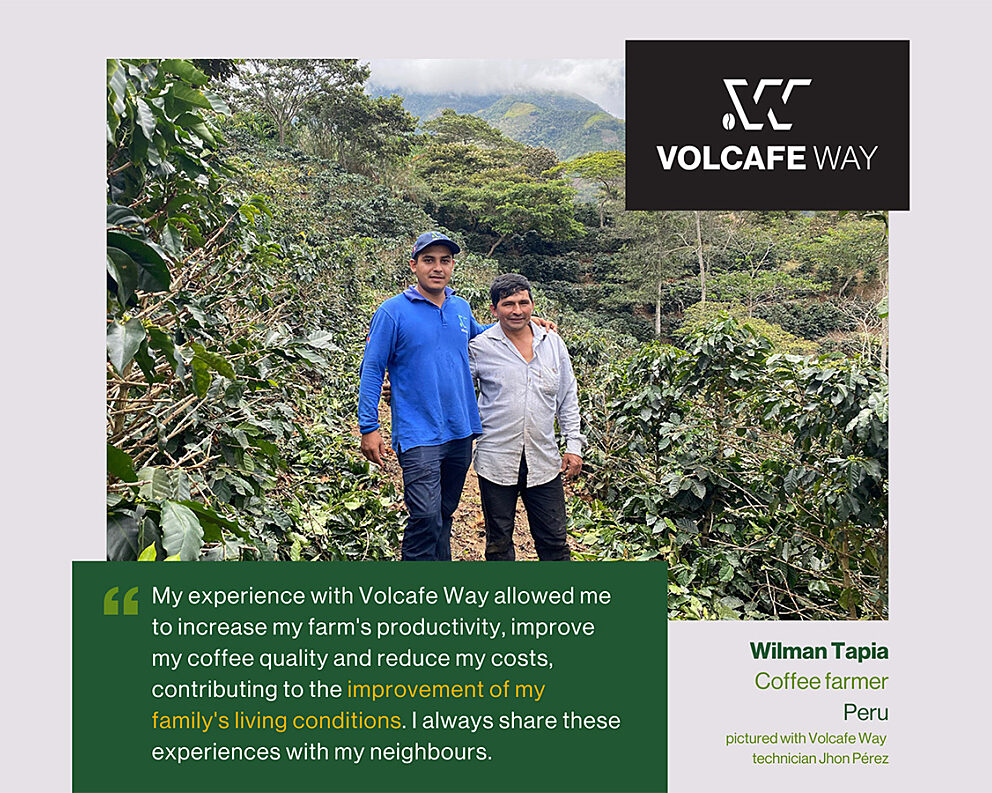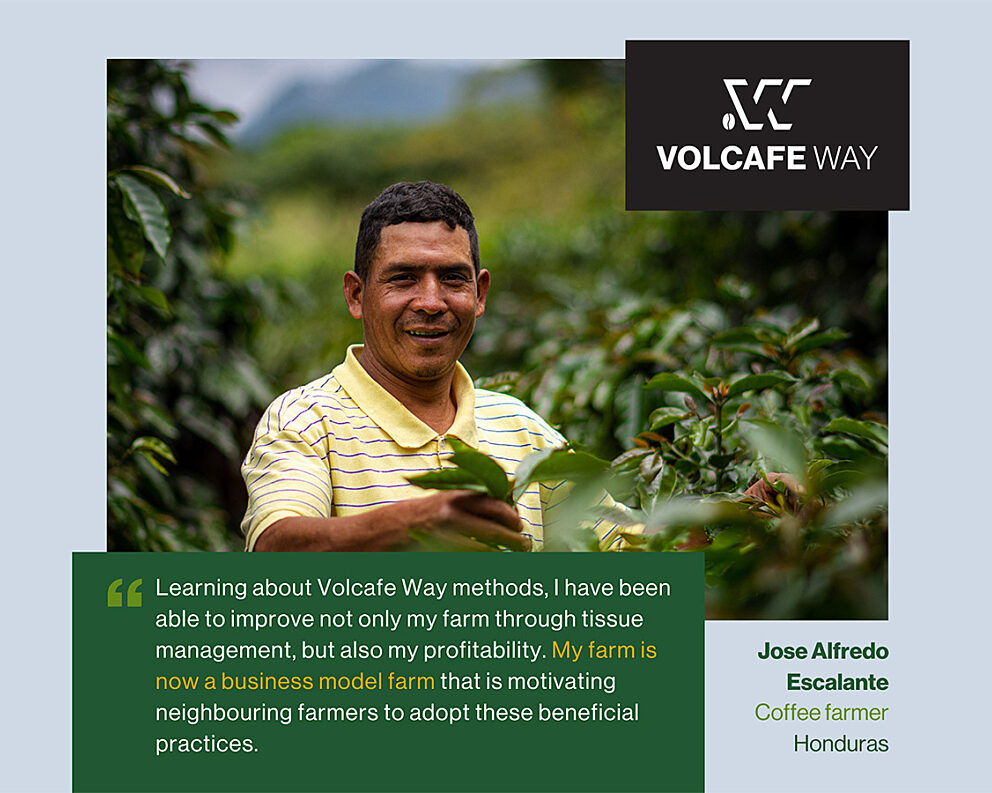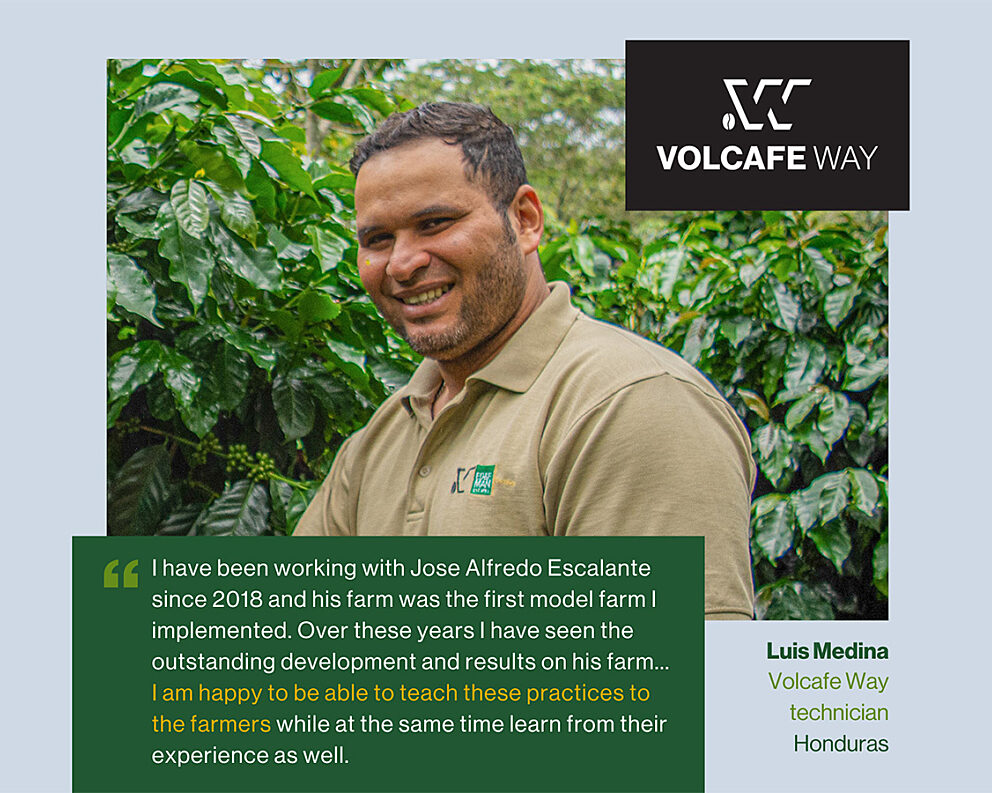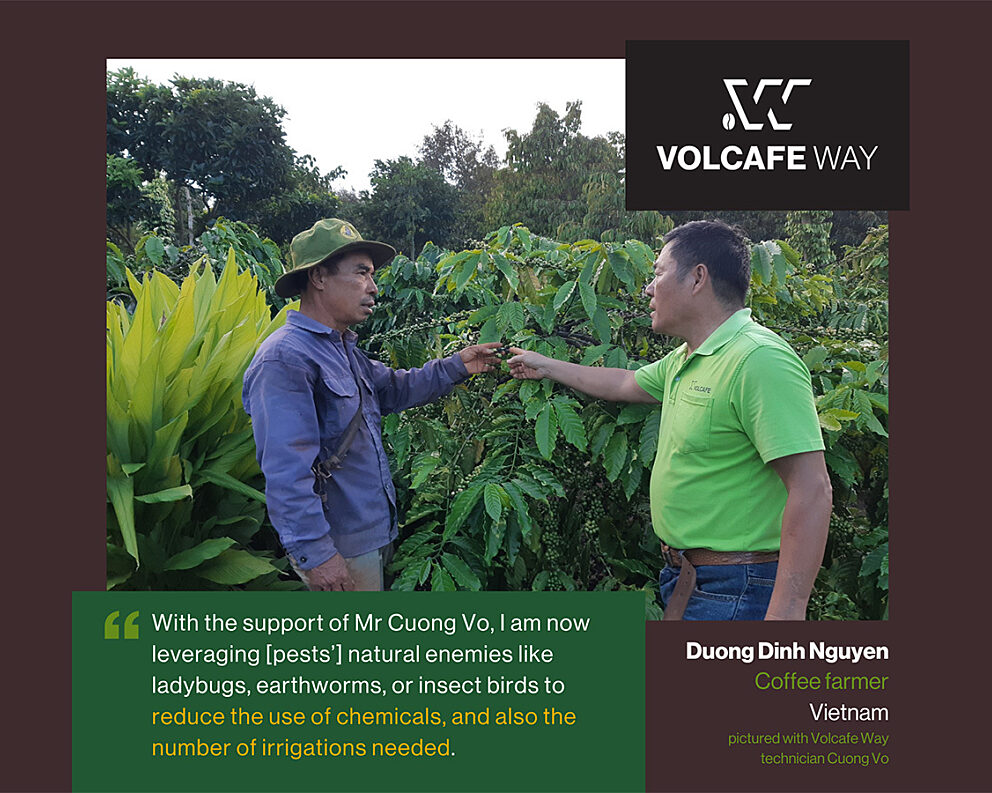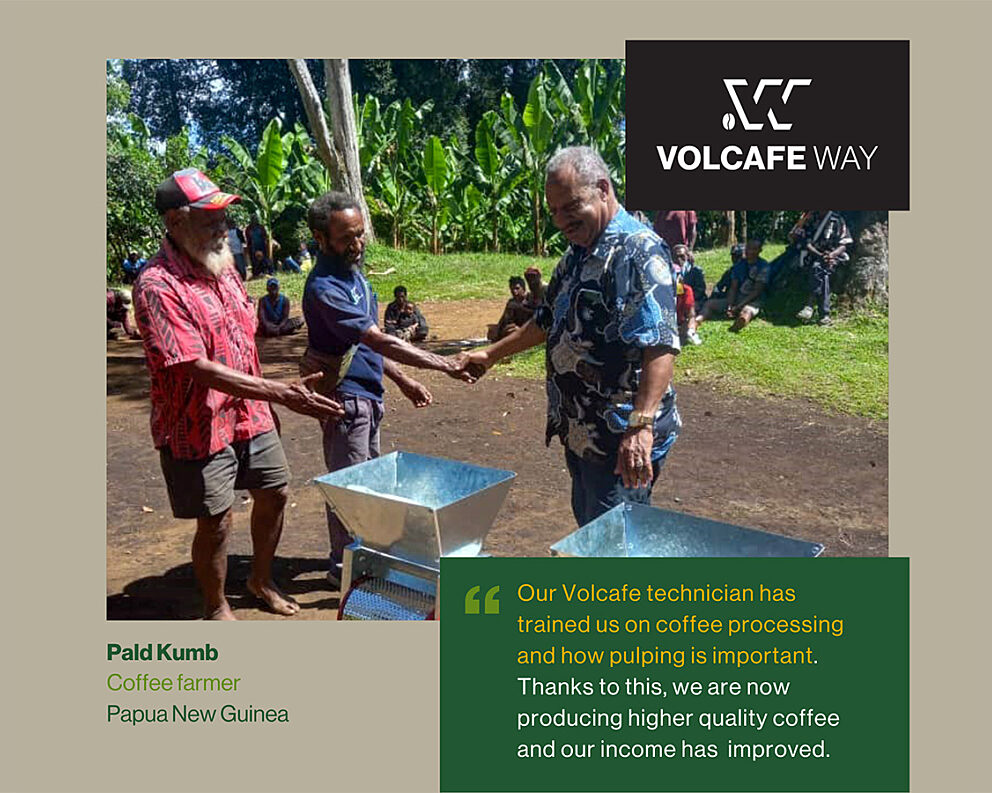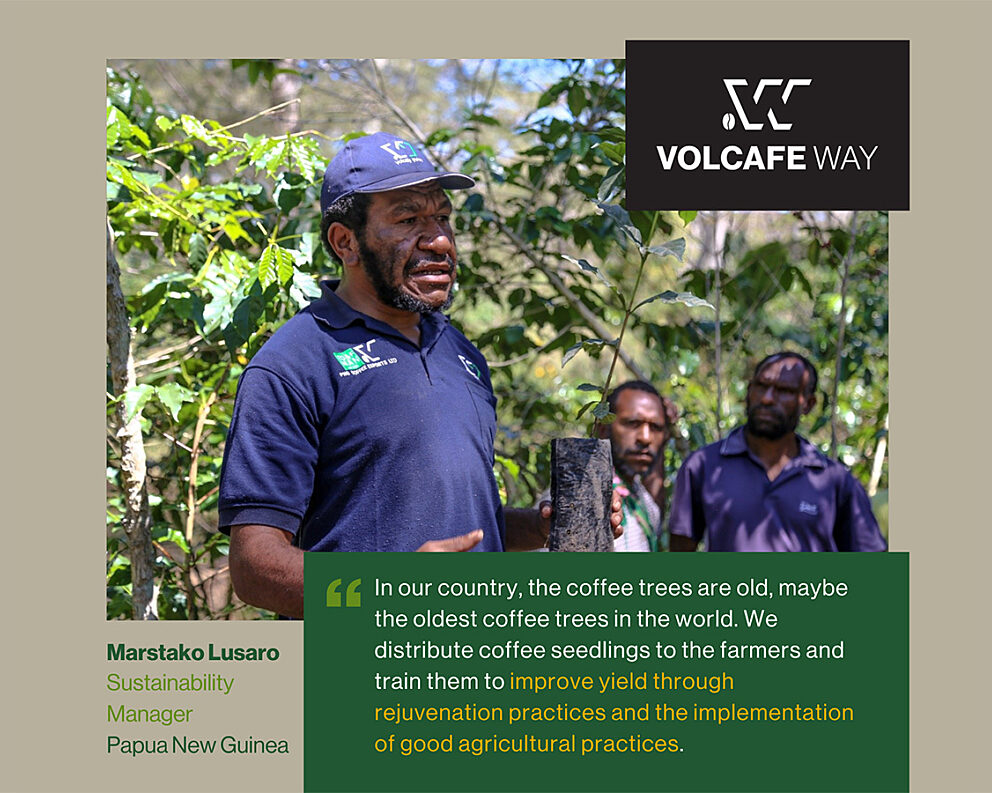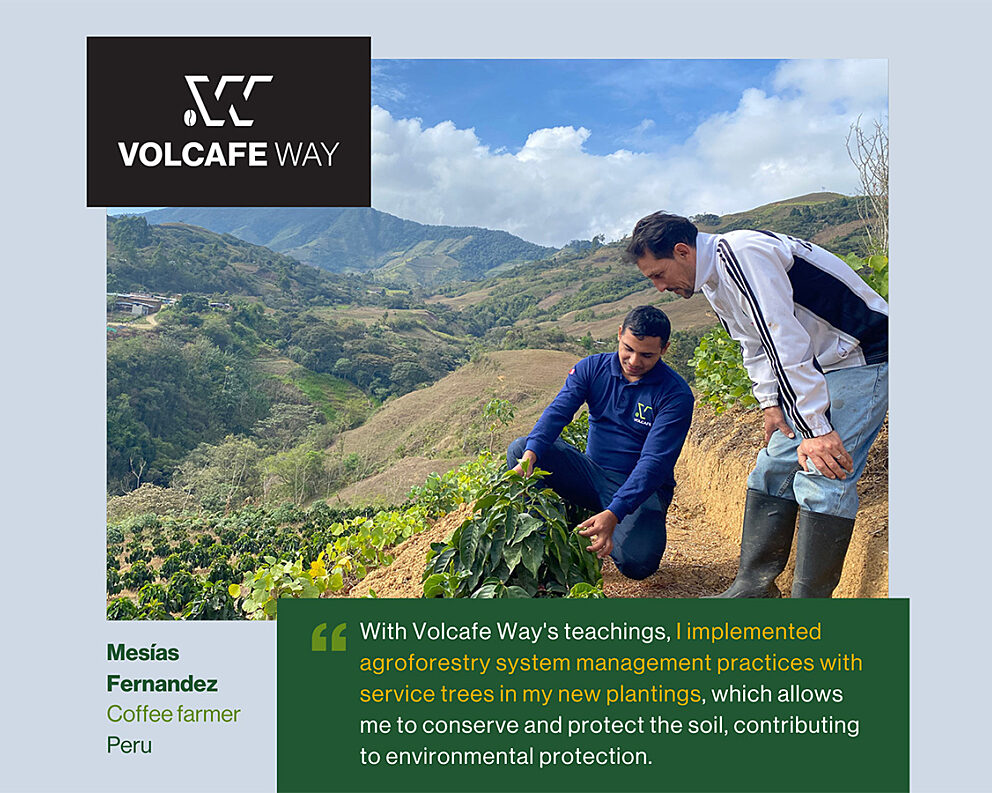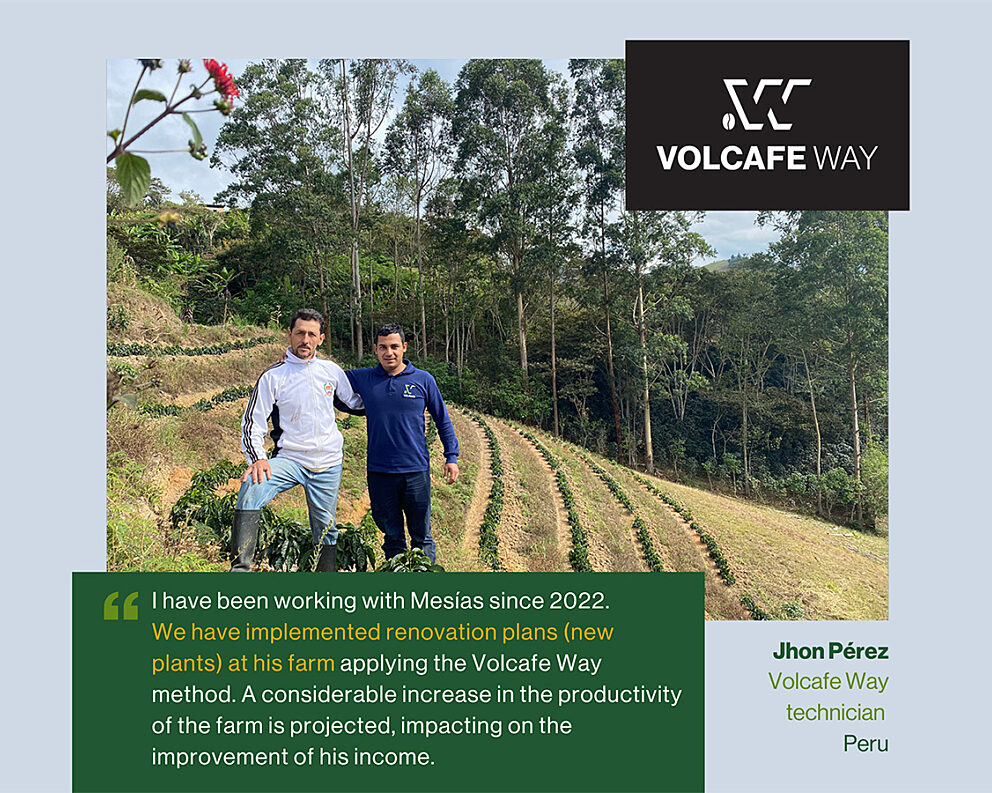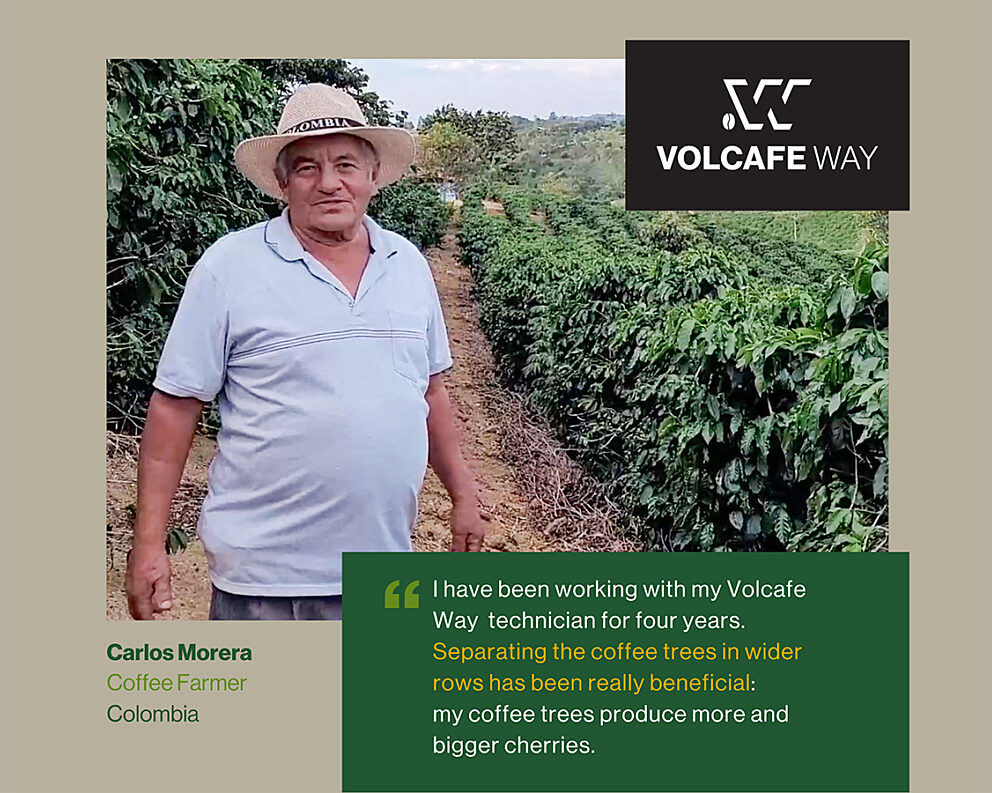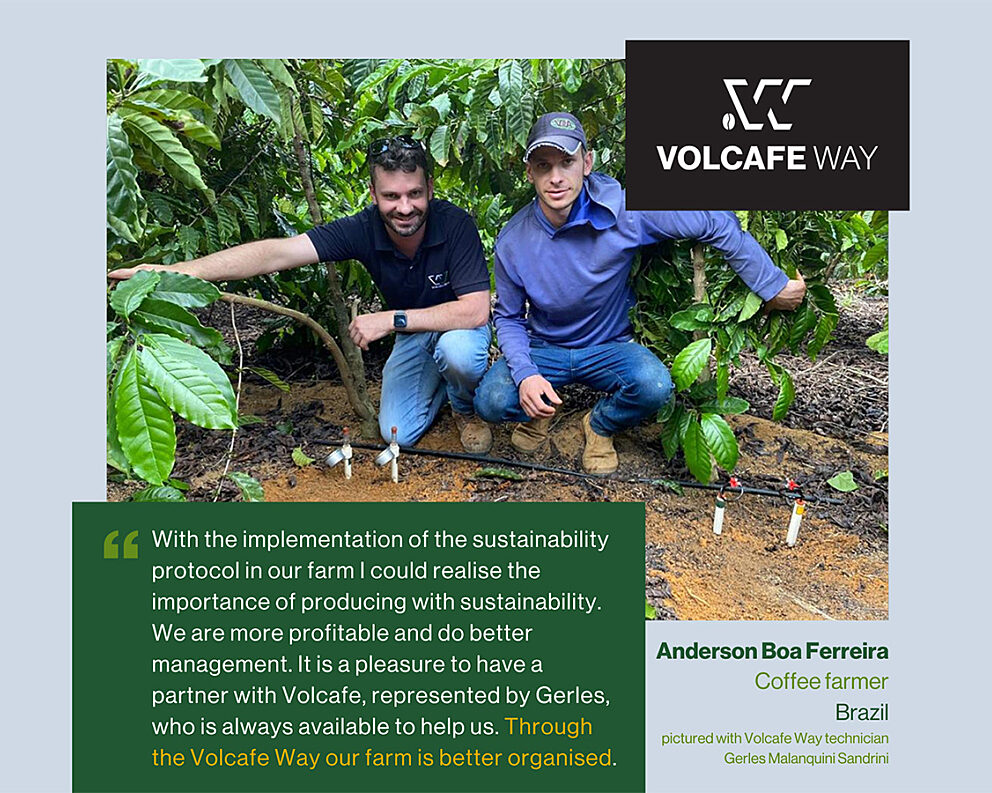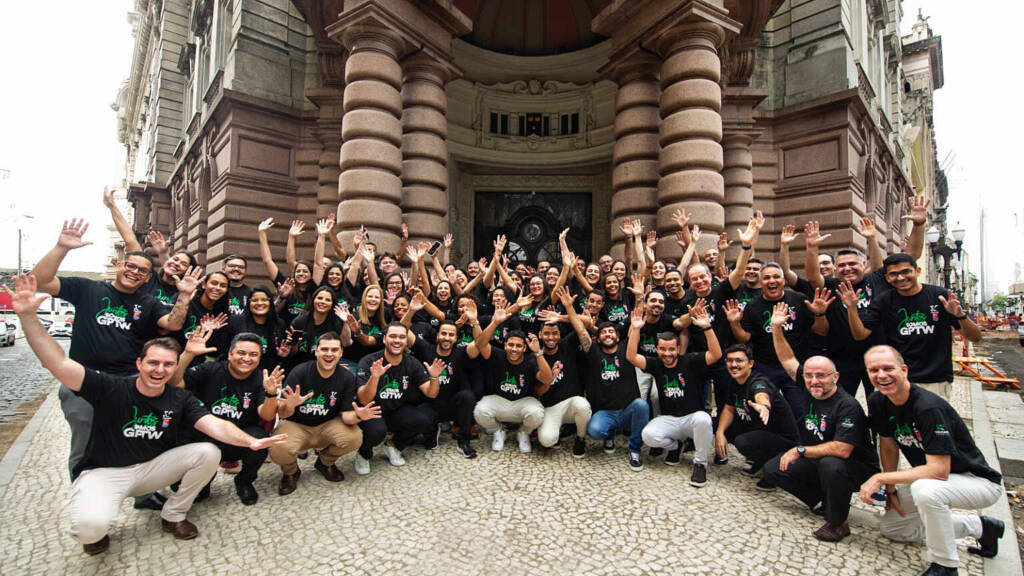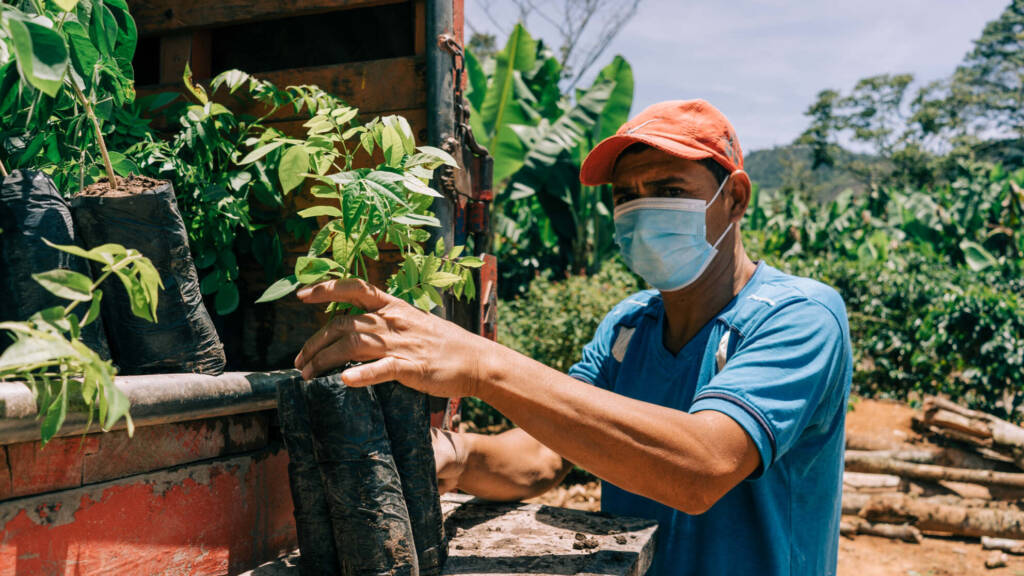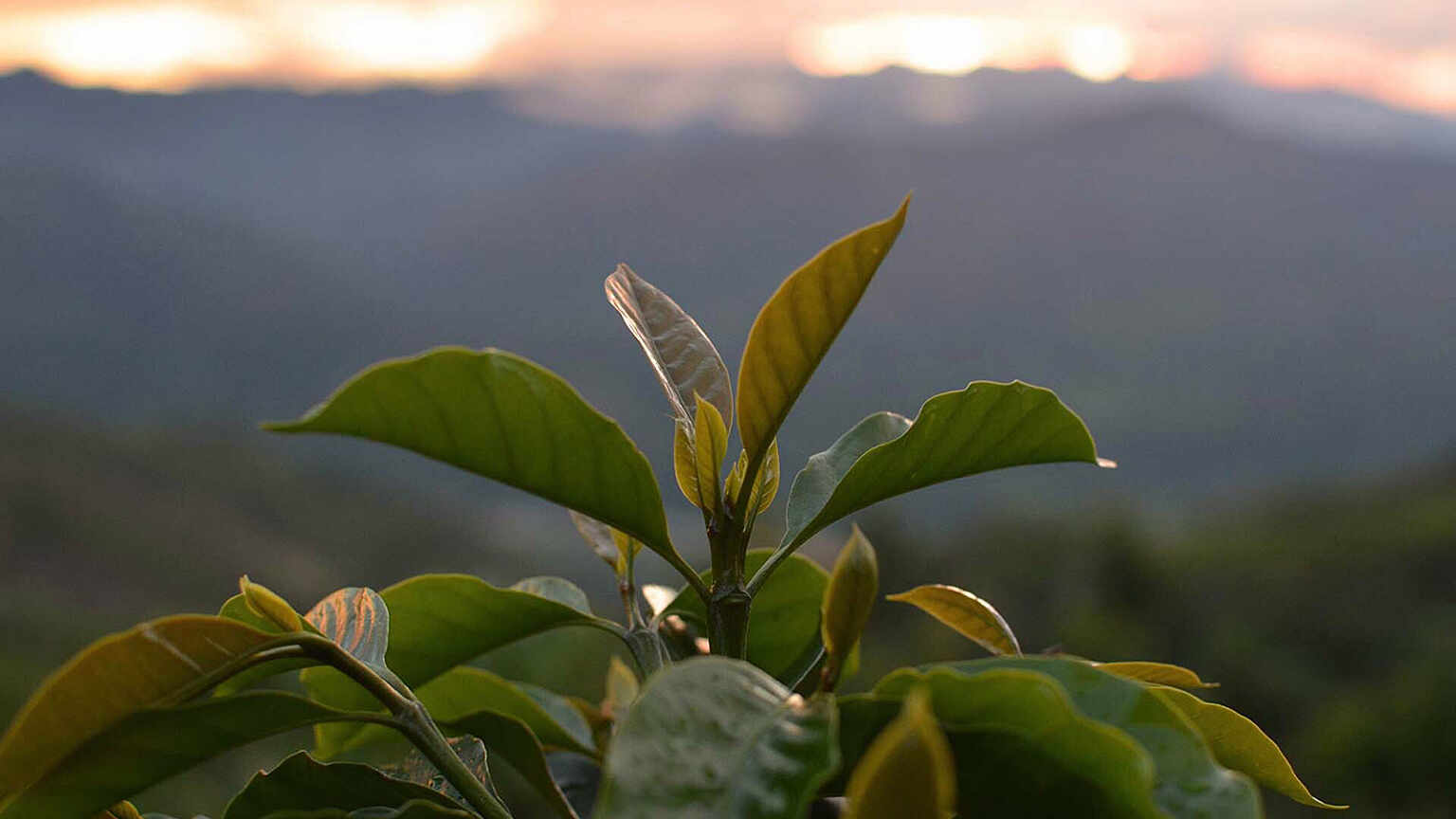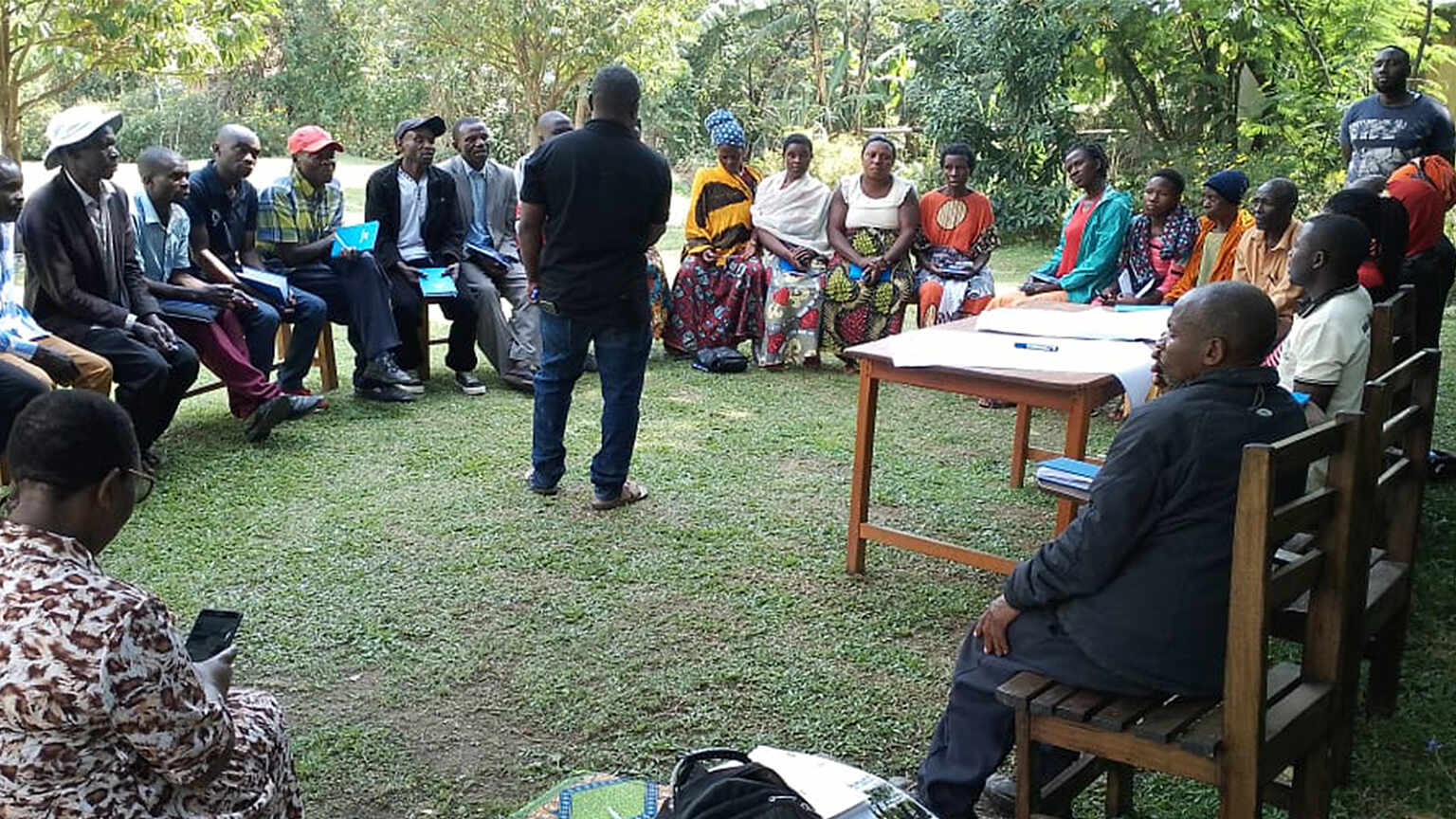Volcafe Way farmers and technicians in their own words
A look at Volcafe’s farmer support programme
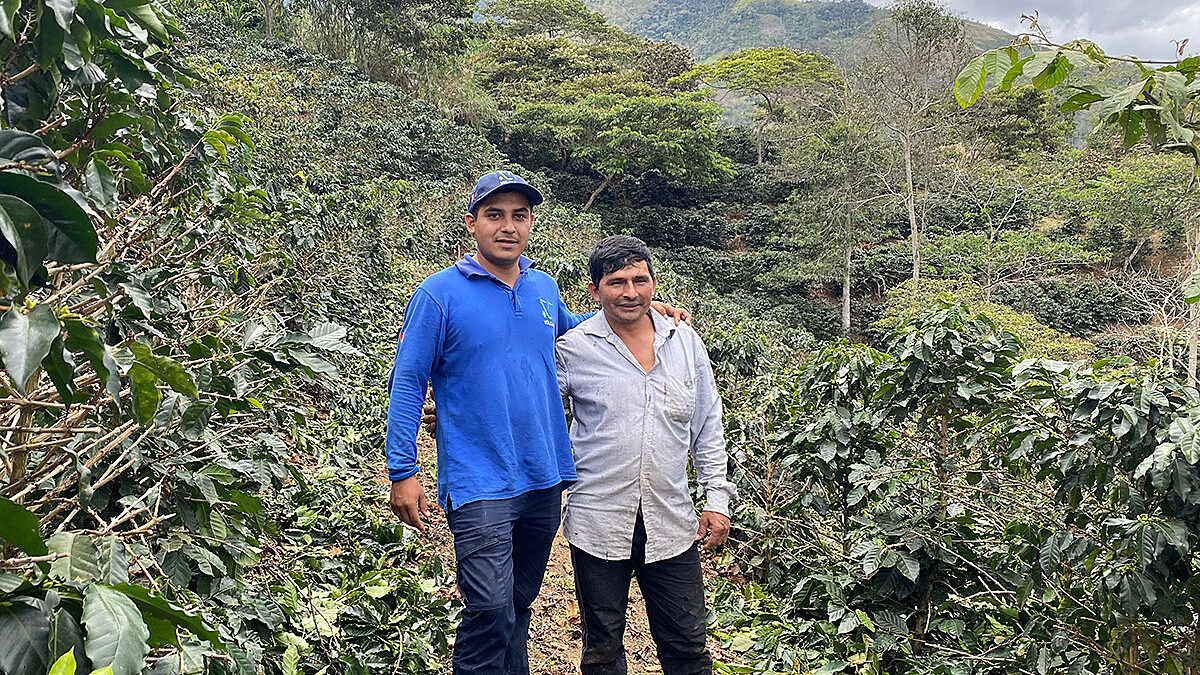
Farmers and technicians reflect on our Volcafe Way farmer support programme
When we began developing the Volcafe Way farmer support programme almost a decade ago, we recognised that coffee farmers face many pressures and uncertainties. Based on our experience working with coffee around the world, we also had some ideas and solutions to share with farmers. We wanted to create a support programme that is flexible enough to respond to varying needs of farmers in many places, yet also savvy enough to avoid offering a one-size-fits-all approach that would likely do more harm than good.
Over the years, Volcafe Way has continually refined its approach and expanded in reach and staffing, building up more local knowledge and better documentation, while offering tailored, practical advice for coffee farmers. Today, Volcafe Way technicians engage with more than 45,000 farmers in 11 coffee origins around the world, from Brazil to Vietnam, and Costa Rica to Tanzania and Papua New Guinea.
Volcafe Way has always emphasised sustainable profitability for farmers, but it also encompasses much more than that.
With more than 250 Volcafe Way agronomists regularly visiting farmers to offer advice and answer questions, it’s not surprising that strong bonds can form between our field staff and the farmers they support. The ideas Volcafe Way advisors share often help to turn around ailing farms, establishing a sense of trust that’s enhanced with each walk and talk in the fields.
During some of those conversations, Volcafe Way farmers and technicians conveyed some of their personal experiences with the programme, which we’re pleased to share here.
Farming as a business
One of Volcafe Way’s core concepts is the idea of farming as a business, to promote the careful attention to cost-tracking, record-keeping, planning, and analysis associated with running any other type of successful business. By framing their farms as small businesses that survive based partly on a sustainable rate of return, farmers hone a sharpened sense of controlling costs and a readiness to apply practices that minimise waste and improve yields.
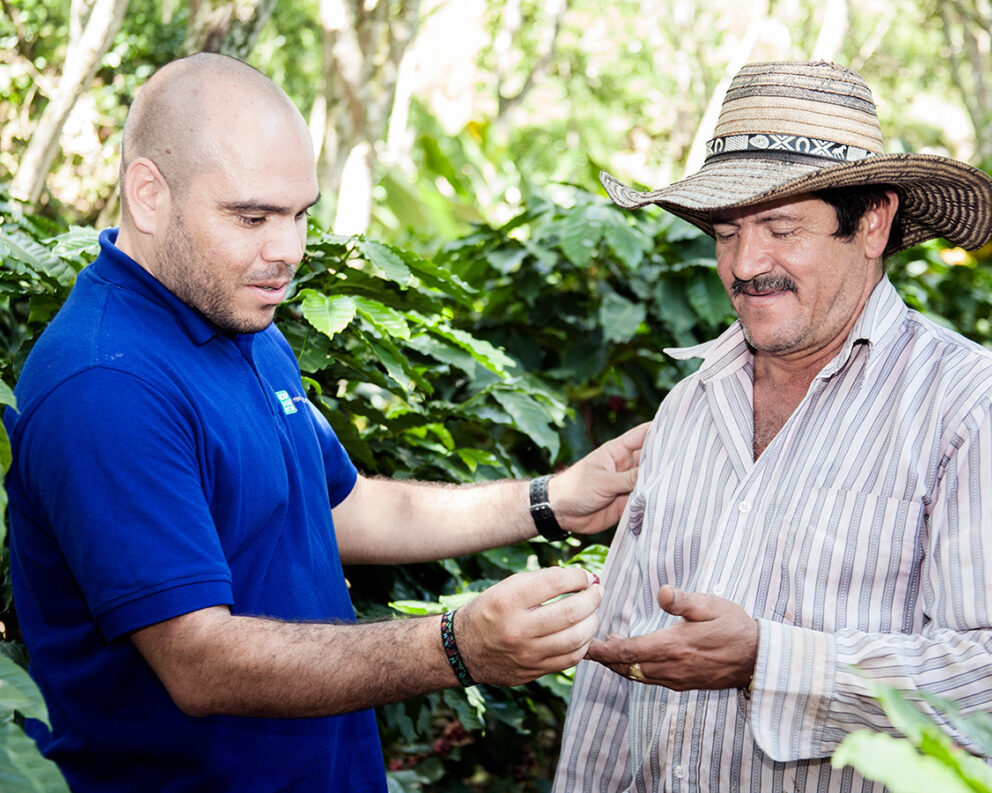
A Volcafe Way technician speaks with a farmer
Kevin Flores, Volcafe Way Regional Coordinator for the western region of Honduras, observes that ‘Through the years of working hand in hand with producers and guiding them into adopting Volcafe Way practices, I’ve seen their willingness to improve their farms and have witnessed their progress into more profitable farms.’
Jose Salomón Mateo, a coffee farmer from Lempira, Honduras, reflects on his experience with the programme: ‘Through Volcafe Way I have been able to understand the concept of viewing my farm as a business, learning to write down my agronomical costs – something I was not doing before – and I now see how important agronomical planning truly is.’
Volcafe Way technician Cesar Ureña Solis in Costa Rica underlines the importance of personal attention in the approach: ‘We’ve worked with the family of Esteban Cordero for six years, and his faith and application of the programme has enabled him to boost and stabilise his production in recent years.’
‘Volcafe Way guides us very well in cultivating coffee,’ adds Esteban Cordero, the Costa Rican farmer working with Ureña Solis. ‘We’ve become very organised and perfectionist in the use of resources, resulting in more productivity and profit.’
As farmers implement changes, the approach often spreads as neighbouring farmers can see the turnaround effect with their own eyes. Wilman Tapia, a coffee farmer from Cajamarca, Peru, explains: ‘My experience with Volcafe Way allowed me to increase my farm’s productivity, improve my coffee quality and reduce my costs, contributing to the improvement of my family’s living conditions. I always share these experiences with my neighbours.’
This business mindset fostered by Volcafe Way also supports farmers to meet the rigorous demands of different responsible sourcing schemes – including Fairtrade, Rainforest Alliance and the Volcafe RS Standard – which in turn opens avenues for farmers to reach more lucrative coffee markets.
Training and techniques to tackle new challenges
In many places, coffee farming is a longstanding tradition. While some farms go back generations in the same family, the challenges of modern coffee farming have led more and more farmers to abandon their farms and seek other opportunities. Volcafe Way aims to make coffee a rewarding option for farmers. The programme teaches good agricultural practices and brings other appropriate new techniques to farmers, encouraging them to undertake renovations on their farms. Sometimes the traditional approach still serves a farmer’s interests well, but in many cases specific changes in practice can mean the same farm attaining better harvests and improved incomes.
Volcafe Way aims to make coffee a rewarding option for farmers.
Volcafe Way technicians share insights that farmers may not have access to, whether in the form of group trainings, in-person visits, harvest calendars, SMS chats, or support to establish working model farms in coffee-growing regions. The technical support ranges from discussing plant health and pest control to recommending fertiliser regimens or methods to retain moisture in arid conditions, to the specifics of how to stump or space rows of coffee plants, to projects to enable access to infrastructure like solar dryers and eco-pulpers.
Some of the recommendations can seem counterintuitive to farmers, especially those accustomed to traditional farming practices. The exchange with Volcafe Way technicians, or the chance to see new methods in practice at one of the 700+ Volcafe Way model farms, can be a further reassurance to farmers that targeted adjustments can bring real benefits.
Operating in 11 countries, Volcafe Way involves more than 45,000 coffee farmers, 150,000 hectares of coffee cultivation, and over 250 agronomists. The first-hand experience garnered through this work also informs Volcafe’s broader efforts to address many of the pressing issues of the coffee sector, from building climate resilience and preventing deforestation, to promoting gender equity and increasing children’s access to education. The on-the-ground presence of Volcafe Way field teams is also critical to the operation of Volcafe’s recently expanded Volcafe RS (responsible sourcing) activities.
‘Volcafe Way has always emphasised sustainable profitability for farmers, but it also encompasses much more than that,’ says Claudio Castro, global programme manager for Volcafe Way. ‘Our field staff help to implement projects that go beyond the crop to benefit the wider community and create a future in coffee for new generations.’

